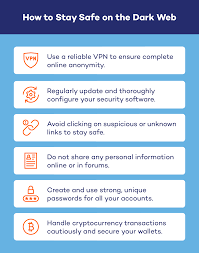Data Privacy on the Deep Web: What’s at Stake?

In today’s hyperconnected world, data privacy has become a pressing concern for individuals and organizations alike. The internet, a vast and intricate network of information, hosts billions of websites, most of which are readily accessible through traditional search engines. However, there’s a deeper layer beneath the surface web the deep web that contains an immense amount of data not indexed by search engines. The deep web is where most of our personal, professional, and institutional data resides. Let’s have a glance to explore the intricacies of data privacy on the deep web, the challenges it presents, and what measures are being taken to protect sensitive information.
Understanding the Deep Web
The deep web refers to parts of the internet that are not indexed by search engines like Google, Bing, or Yahoo. Unlike the dark web, which is a small fraction of the deep web associated with illicit activities, the deep web is largely made up of legitimate content. This includes:
- Password-protected websites
- Private databases
- Subscription-based services (e.g., academic journals, online banking, and government records)
- Medical, financial, and legal records
- Confidential business information
Most people interact with the deep web daily without even realizing it—logging into a bank account, accessing cloud storage, or checking work emails, all involve visiting deep web pages.
Why Data Privacy Matters on the Deep Web
On the surface, the deep web might seem like a safe space for sensitive data, but with growing cyber threats, this perception is quickly changing. The information stored in the deep web includes highly sensitive data—personal identities, financial details, medical histories, trade secrets, and government documents. If you want the best info with updated news you can click here “Deep Web Powers Online Privacy and Security”. A breach of data privacy in the deep web can have far-reaching consequences, including:
Identity theft
Hackers who infiltrate databases on the deep web can access personal details such as social security numbers, addresses, and passwords. This information can be sold on the dark web or used for malicious purposes.
Financial loss
Accessing banking and financial records opens up opportunities for cybercriminals to commit fraud, steal funds, or manipulate financial systems.
Corporate espionage
Companies store confidential data such as intellectual property, trade secrets, and business strategies on the deep web. Breaches can lead to the leaking of critical business information, damaging a company’s competitive edge.
Challenges to Data Privacy on the Deep Web
Protecting data privacy on the deep web comes with several challenges:
Complexity of Access Controls
Most data on the deep web is hidden behind access controls like passwords, two-factor authentication, and encryption. However, human error—such as weak passwords or misconfigured databases—can leave sensitive information exposed. Additionally, cybercriminals continually evolve their tactics to bypass these security measures.
Vulnerabilities in Encryption
Encryption is a powerful tool for securing data, but it’s not foolproof. If encryption protocols are outdated or improperly implemented, attackers can exploit these vulnerabilities to gain access to confidential information. The rise of quantum computing is also looming as a potential threat to encryption methods, which could lead to more frequent data breaches.
Third-Party Data Leaks
Many organizations rely on third-party services for data storage and processing. However, the more entities involved in managing sensitive data, the higher the risk of leaks. Even if a primary organization follows strict data privacy protocols, a third-party vendor with weaker defenses could provide an entry point for hackers.
How to Protect Data Privacy on the Deep Web
Given the importance of securing sensitive information on the deep web, several best practices and technologies have emerged to protect data privacy:
Encryption and Secure Communications
One of the best ways to safeguard data privacy is through end-to-end encryption. This ensures that even if unauthorized parties intercept the data, they cannot read or access it without the decryption key. Using tools like Virtual Private Networks (VPNs), secure email services, and encrypted messaging apps can provide an additional layer of protection when accessing the deep web.
Multi-Factor Authentication (MFA)
Implementing multi-factor authentication adds another hurdle for potential attackers. Even if they obtain a password, they would need a second factor—such as a code sent to a phone or a fingerprint scan—to gain access to a system. MFA is a critical safeguard for services that store sensitive data, especially on the deep web.
Zero-Trust Architecture
Adopting a zero-trust architecture is becoming more common in organizations that want to limit data breaches. This model operates on the principle of “trust no one,” meaning that every user, device, and application must be authenticated and authorized continuously, even after initial access is granted. It helps mitigate the risks associated with insider threats and compromised credentials.
The Future of Data Privacy on the Deep Web
As technology continues to evolve, so too will the challenges to data privacy on the deep web. The rise of artificial intelligence, machine learning, and quantum computing is expected to bring both new solutions and new vulnerabilities. AI-powered security tools will become more adept at detecting breaches and securing sensitive data, while advancements in quantum computing could potentially break traditional encryption methods. Additionally, regulatory changes such as the General Data Protection Regulation (GDPR) in Europe and similar laws around the world are likely to place greater pressure on organizations to protect their data.
Conclusion
Data privacy on the deep web is more than just a technical issue—it’s a matter of personal security, corporate integrity, and trust in the digital age. As we continue to store sensitive information in deep web databases, the stakes will only grow higher. A breach of privacy on the deep web can have devastating consequences for individuals, businesses, and governments. However, by staying informed about the risks, leveraging advanced security technologies, and adhering to best practices for data protection, we can mitigate these risks and continue to benefit from the hidden yet crucial resources the deep web offers.




